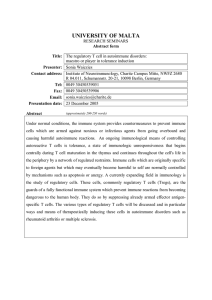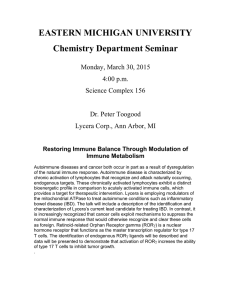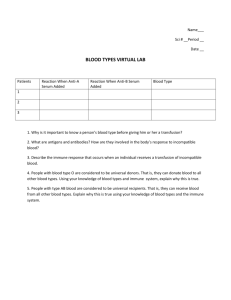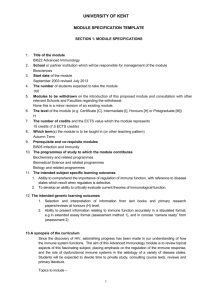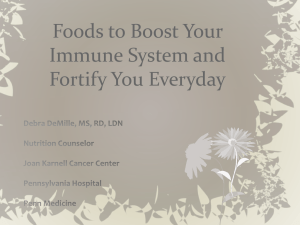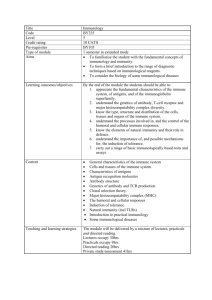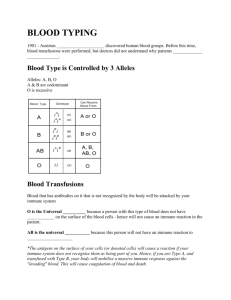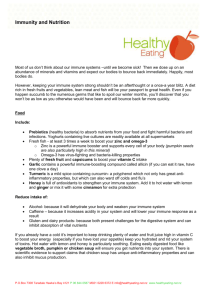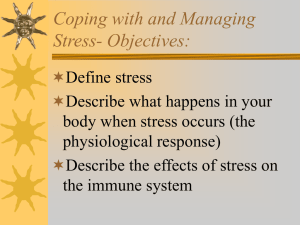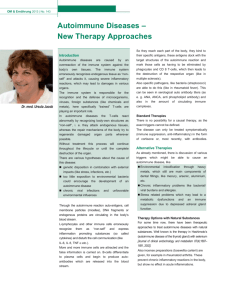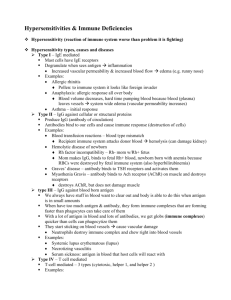MAS-Part-4-2013
advertisement
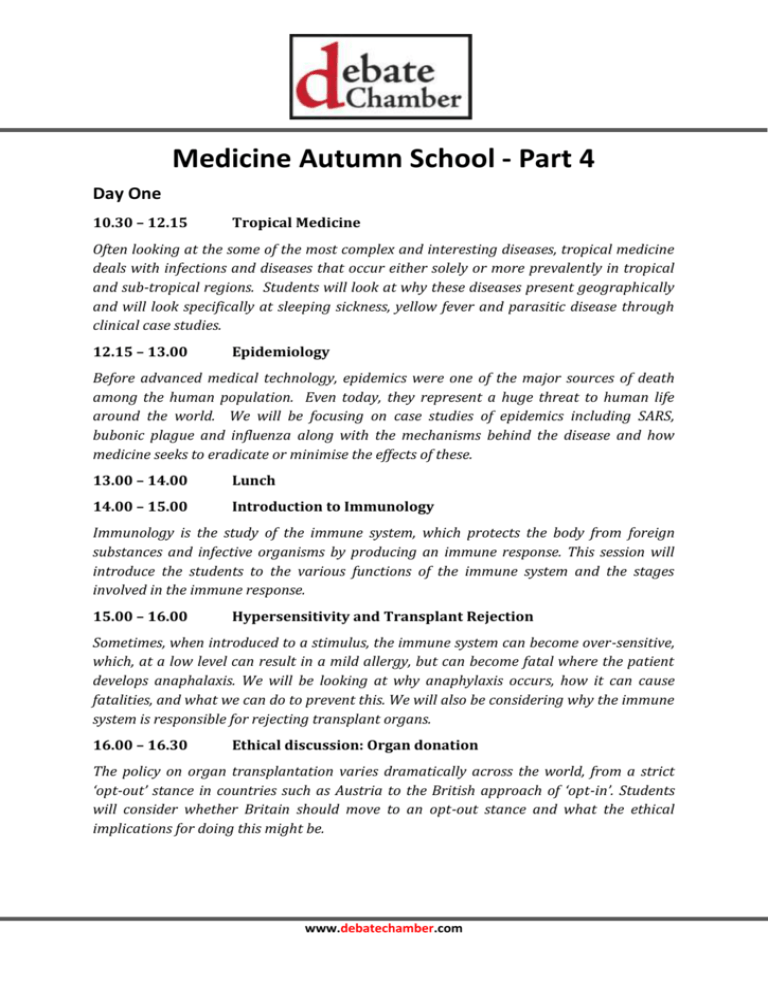
Medicine Autumn School - Part 4 Day One 10.30 – 12.15 Tropical Medicine Often looking at the some of the most complex and interesting diseases, tropical medicine deals with infections and diseases that occur either solely or more prevalently in tropical and sub-tropical regions. Students will look at why these diseases present geographically and will look specifically at sleeping sickness, yellow fever and parasitic disease through clinical case studies. 12.15 – 13.00 Epidemiology Before advanced medical technology, epidemics were one of the major sources of death among the human population. Even today, they represent a huge threat to human life around the world. We will be focusing on case studies of epidemics including SARS, bubonic plague and influenza along with the mechanisms behind the disease and how medicine seeks to eradicate or minimise the effects of these. 13.00 – 14.00 Lunch 14.00 – 15.00 Introduction to Immunology Immunology is the study of the immune system, which protects the body from foreign substances and infective organisms by producing an immune response. This session will introduce the students to the various functions of the immune system and the stages involved in the immune response. 15.00 – 16.00 Hypersensitivity and Transplant Rejection Sometimes, when introduced to a stimulus, the immune system can become over-sensitive, which, at a low level can result in a mild allergy, but can become fatal where the patient develops anaphalaxis. We will be looking at why anaphylaxis occurs, how it can cause fatalities, and what we can do to prevent this. We will also be considering why the immune system is responsible for rejecting transplant organs. 16.00 – 16.30 Ethical discussion: Organ donation The policy on organ transplantation varies dramatically across the world, from a strict ‘opt-out’ stance in countries such as Austria to the British approach of ‘opt-in’. Students will consider whether Britain should move to an opt-out stance and what the ethical implications for doing this might be. www.debatechamber.com Day Two 10.30 – 11.30 Autoimmune diseases One of the most confounding areas in Medicine is the diagnosis of autoimmune diseases. It is believed that many of the conditions we are still unable to explain have a basis in autoimmunity. Autoimmune diseases occur when your body’s immune system attacks itself, and as a result patients can present in a clinic with many misleading and varied symptoms. In this session we will be using interactive case studies to take a look at some of these diseases and will look at their mechanisms and treatment options. 11.30 – 12.30 Anaesthesia Introducing the class to surgery, this session will briefly explore the method, equipment and drugs used to anaesthetise patients before surgery. A brief overview will be given on the dangers of general anaesthetic and the safety procedures carried out by anaesthetists to minimise such risks. 12.30 – 13.30 Lunch 13.30 – 14.30 Wound care and debridement Debridement is the medical removal of necrotic (dead) tissue which can involve autolytic, surgical, and even maggot therapy. Using the TIME acronym, students will learn how surgeons categorize tissue destruction by looking at the characteristics and symptoms of the wound in order to ascertain a pathophysiology. In determining a pathophysiology from our detailed case studies, the class will be led through the surgical procedures and techniques specific to debridement. 14.30 – 15.30 Neurosurgery Students will be guided through the theory behind surgical procedures, and will then watch a detailed video which provides an overview of the full surgical procedure of an awake craniotomy (open-skull surgery). Accompanying this, the class will be guided through the techniques employed by the surgeons in carrying out this procedure. 15.30 – 16.30 Advanced Suturing Skills Students will learn the surgical technique of vertical and horizontal mattress suturing and the Smead-Jones stitch. We will cover the relevant advantages and disadvantages in using these stitches and will practice these in the session. www.debatechamber.com
